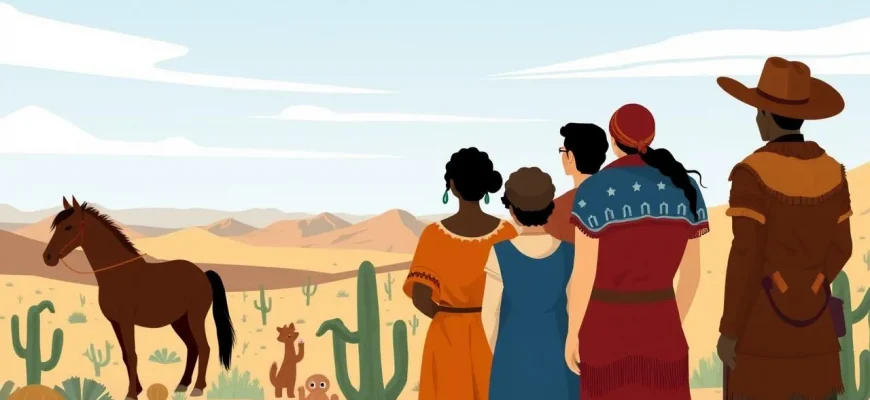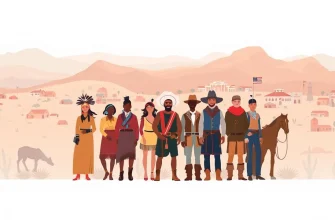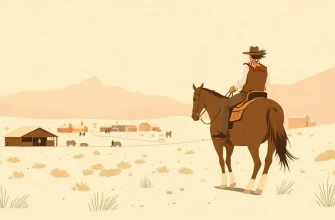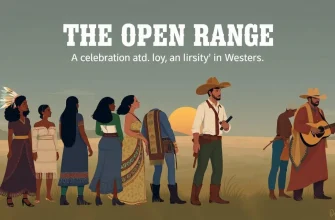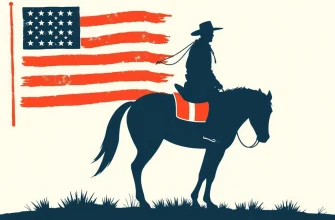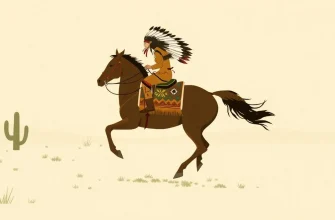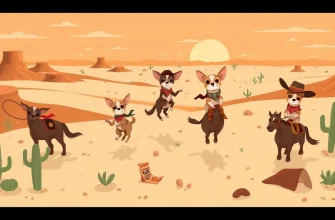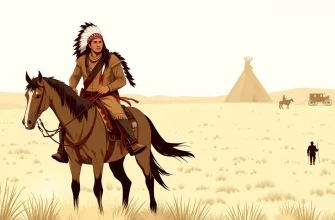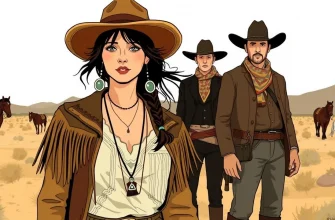The Wild West, with its vast landscapes and rugged individualism, has always been a fertile ground for exploring cultural clashes and diversity. These films delve into the complexities of cultural interactions, showcasing how different backgrounds can lead to both conflict and understanding. From Native American perspectives to immigrant stories, this collection offers a unique lens through which to view the American frontier.

Broken Arrow (1950)
Description: This film tells the story of Tom Jeffords, who forms an alliance with the Apache leader Cochise, promoting peace and understanding between cultures during a time of war.
Fact: It was one of the first films to portray Native Americans in a sympathetic light.
 Watch Now
Watch Now 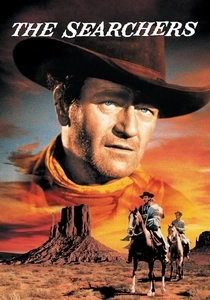
The Searchers (1956)
Description: John Wayne's character, Ethan Edwards, embarks on a quest to rescue his niece from a Comanche tribe, revealing deep-seated prejudices and the harsh realities of cultural misunderstandings.
Fact: The film is often cited for its complex portrayal of racism and its influence on the Western genre.
 Watch Now
Watch Now 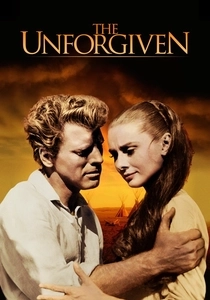
The Unforgiven (1960)
Description: This film delves into the racial tensions within a family when it's revealed that one of the members might be of Native American descent, exploring themes of identity and prejudice.
Fact: The film was directed by John Huston and features a powerful performance by Audrey Hepburn.
 Watch Now
Watch Now 
Little Big Man (1970)
Description: This satirical Western follows Jack Crabb, a white man raised by the Cheyenne, offering a comedic yet insightful look at cultural identity and the clash between Native American and white cultures.
Fact: Dustin Hoffman's performance as Jack Crabb was critically acclaimed, and the film was nominated for an Academy Award for Best Adapted Screenplay.
 Watch Now
Watch Now 
The Outlaw Josey Wales (1976)
Description: After his family is murdered, Josey Wales becomes an outlaw, but his journey leads him to form an unlikely band of misfits from various backgrounds, showcasing the melting pot of the West.
Fact: The film was directed by and stars Clint Eastwood, who also co-wrote the screenplay.
 Watch Now
Watch Now 
Dances with Wolves (1990)
Description: This epic film follows Lieutenant John J. Dunbar, who befriends a tribe of Lakota Sioux, learning their ways and ultimately choosing their culture over his own. It's a poignant exploration of cultural immersion and respect.
Fact: Kevin Costner, who stars as Dunbar, also directed and co-produced the film, which won seven Academy Awards, including Best Picture.
 Watch Now
Watch Now 
The Last of the Mohicans (1992)
Description: Set during the French and Indian War, this film explores the cultural clash between European settlers and Native Americans, focusing on the Mohican tribe's struggle for survival.
Fact: The film's score by Trevor Jones and Randy Edelman was highly praised and became iconic.
 Watch Now
Watch Now 
Geronimo: An American Legend (1993)
Description: This film provides a nuanced look at the Apache leader Geronimo's resistance against the U.S. government, highlighting the cultural and historical context of his fight.
Fact: Gene Hackman's portrayal of General George Crook was critically acclaimed.
 Watch Now
Watch Now 
The Missing (2003)
Description: A father and daughter, estranged by cultural differences, must work together to rescue her kidnapped daughter from a group of Apache warriors, highlighting the complexities of family and cultural identity.
Fact: The film was shot on location in New Mexico, providing an authentic backdrop for its cultural narrative.
 Watch Now
Watch Now 
The Ballad of Buster Scruggs (2018)
Description: This anthology film by the Coen Brothers includes a segment titled "The Gal Who Got Rattled," which explores cultural differences through the story of a woman traveling westward with a wagon train.
Fact: The film was nominated for three Academy Awards, including Best Adapted Screenplay.
 30 Days Free
30 Days Free 
